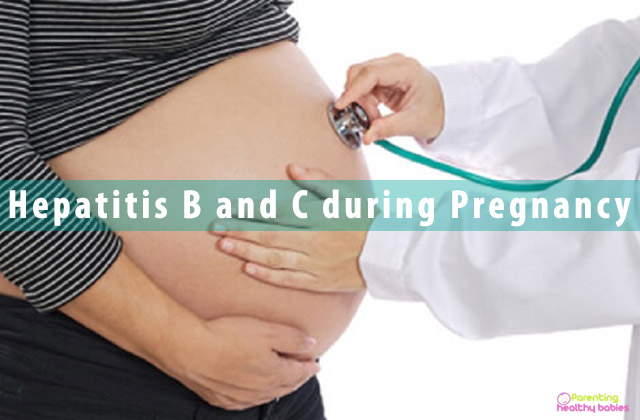There is no doubt about the fact that being a woman, pregnancy is definitely a very vital period of your life. When you prepare yourself for being a mother, the entire world around you changes. After all, you are about to bring a little bundle of joy to this world for the very first time! Just as the “negative” in your pregnancy test kit turns to “positive”, everything in your life starts to revolve around that baby growing up inside you. Your happiness of course is beyond imagination, and yet, you can’t entirely drive away that nibbling fear creating a home inside you, always asking you “What if?”.
Pregnancy certainly is one of the most crucial periods of your life as anything that happens to you might as well affect the baby and of course, there can be nothing worse than this. It is one of the most vulnerable times of your life and you are likely to get afflicted with a number of diseases and ailments during this period. Hepatitis is one such disease which is quite common during pregnancy and hence you should know certain things about it. To make things easier for you, in this article, we are going to tell you everything that you need to know about Hepatitis B and C during pregnancy.
Hepatitis is an inflammation of the liver. The condition can be self-limiting or can progress to fibrosis (scarring), cirrhosis or liver cancer. Hepatitis viruses are the most common cause of hepatitis in the world but other infections, toxic substances (e.g. alcohol, certain drugs), and autoimmune diseases can also cause hepatitis. There are 5 main hepatitis viruses, referred to as types A, B, C, D and E. These 5 types are of greatest concern because of the burden of illness and death they cause and the potential for outbreaks and epidemic spread. In particular, types B and C lead to chronic disease in hundreds of millions of people and, together, are the most common cause of liver cirrhosis and cancer.
Hepatitis B and C During Pregnancy: Signs, Causes, Symptoms and Treatment
What are the signs?
Common signs of hepatitis include nausea and vomiting, loss of appetite, fever, abdominal pain and jaundice, or yellowing of the skin and the whites of the eyes. The problem is, depending on the type of virus, symptoms might not show up for months or years after infection, or you may have no symptoms at all.
What are the causes of Hepatitis B and C?
Hepatitis B virus (HBV) is transmitted through exposure to infective blood, semen, and other body fluids. HBV can be transmitted from infected mothers to infants at the time of birth or from family member to infant in early childhood. Transmission may also occur through transfusions of HBV-contaminated blood and blood products, contaminated injections during medical procedures, and through injection drug use. HBV also poses a risk to healthcare workers who sustain accidental needle stick injuries while caring for infected-HBV patients. Safe and effective vaccines are available to prevent HBV.
Hepatitis C virus (HCV) is mostly transmitted through exposure to infective blood. This may happen through transfusions of HCV-contaminated blood and blood products, contaminated injections during medical procedures, and through injection drug use. Sexual transmission is also possible but is much less common. There is no vaccine for HCV.
Symptoms of Hepatitis B and C
If you are affected with Hepatitis B, you are likely to get the following symptoms:
- Jaundice
- Nausea and vomiting
- Weakness and loss of appetite
- Abdominal pain and pain in joints
- Liver dysfunction
- Extreme dehydration and lack of appetite
For hepatitis C, you might get the following symptoms:
How can they be diagnosed?
Your gynaecologist usually suggests you to undergo routine medical examination in the first trimester, or early in the second trimester to check for the presence of hepatitis B. If you test negative for the infection, and already have the antibody, then you are fine. However, if you test positive, then you will be further tested for complications, especially liver-related problems. Similarly, for hepatitis C, a blood test can ensure whether or not you have the disease and to what extent.
Treatment and Prevention
Most of the pregnant mothers are given the antibodies through hepatitis B immunoglobulin (HBIG). If the hepatitis C infection is detected at an early stage, the doctor may prescribe certain vaccinations and medications to prevent the spread of the infection to your baby, the chances of which are around 5%.
Can these diseases affect your baby?
If you have the infection, there are risks of transmitting the same to your baby. Your baby should be fine during pregnancy. The biggest risk is that your baby could be infected during birth. That is on fact the very reason why ideally, all pregnant women are tested for hepatitis during the early periods of pregnancy. However, harm to your baby can be prevented and the chances of the diseases affecting your baby can be minimized. The following actions will ensure the safety of your newborn:
- Administering hepatitis B immunoglobulin right after birth.
- The first shot of vaccine must be given within 12 hours of birth.
- Successive doses of vaccine to be given at the age of one month and six months.
In most cases, however, if the nursing mother is identified with hepatitis, her breastfeeding the baby in that condition does not usually affect the baby in anyway.
There is not much to worry about this from before however. Even if you are affected with this disease, make sure you take all the precautions after delivery so that it doesn’t take a toll on your baby. Feel free to consult your doctor without hesitation and things will be fine! Happy Parenting!
